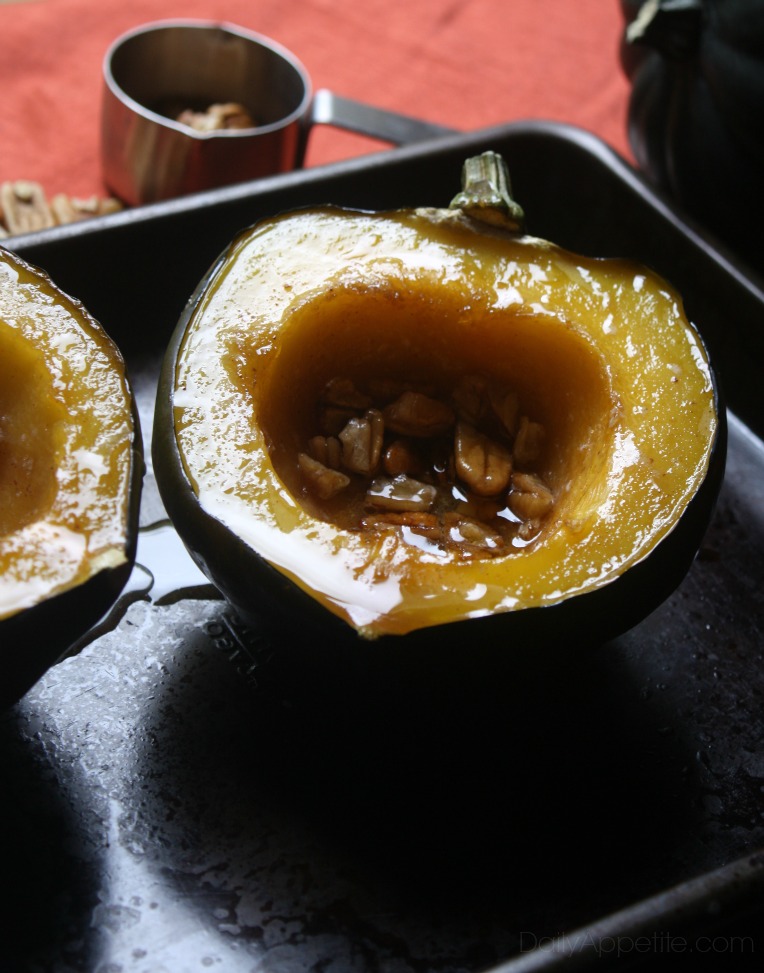

Furthermore, it clears the digestive tract and helps decrease the symptoms of constipation, stomach cramping, and diarrhoea bloating. Acorn Squash Helps Manage DiabetesĪcorn squashes are rich in dietary fibres and are a non-nutrient substance that helps add bulk to the diet. In addition, the consumption of acorn squash helps in the deposition of minerals in bone. The great content of micronutrients such as calcium, magnesium, iron, zinc, folate, and phosphorus helps heal bones rapidly after injury. Strengthen BonesĬonsuming acorn squash helps prevent osteoporosis and promotes bone regrowth. It also helps to prevent fluid imbalance in tissues and cells. Potassium reduces stress, helps vasodilation, and acts as a relaxing agent for blood vessels. According to a study, a high amount of potassium helps to maintain blood pressure. Regulates Blood PressureĪcorn squash is abundant in magnesium and potassium, enhancing certain enzymes’ functions and cellular activities. It helps reduce oxidative stress in the eyes and helps heal cell damage after injury. Also, it improves a significant role in eye vision, according to a study. It consists of excellent beta-carotene and vitamin C content. Enhances VisionĪcorn Squash, rich in vitamins and minerals, helps improve vision and prevent night blindness.
Calories in baked acorn squash skin#
Also, it makes skin shiny and scar-free, speeds up the skin’s healing process, and prevents premature ageing. According to research, consuming acorns helps avoid squamous epidermal cancer. Acorn Squash Enhances SkinĪcorn squash is rich in antioxidants such as vitamin c and beta carotene, which help prevent sun damage to the skin. As a result, it helps prevent cardiovascular disease, stroke, high cholesterol, and blood pressure. Health Benefits of Acorn SquashĪccording to the Department of Health and Human Services, acorn squash is rich in many essential vitamins and minerals. Moreover, the rind of acorn squash contains insoluble fibres that help keep blood sugar levels stable. Acorn Squash has no cholesterol and can help to lower bad LDL cholesterol. This fibre-rich vegetable provides roughly 1.5 grams of fibre, which helps keep blood glucose and cholesterol levels balanced. The majority of calories in acorn squash come from carbohydrates, with fibre accounting for about a third of those calories. Therefore, it has a lower carbohydrate content than potatoes and other squash varieties. The HealthifyMe NoteĪcorn squash is a starchy vegetable high in vitamins and minerals. They aid in fluid balance in cells and tissues, blood pressure regulation, and immune system development. Several studies have also shown Carotenoids to lower the risk of cardiovascular disease and cancer.Ī 100-gram portion of acorn squash has 347 milligrams of potassium, 36 milligrams of phosphorus, and 32 milligrams of magnesium. Acorn squashes are high in beta-carotene, which helps with vision and skin health. It also comes with a minor quantity of Thiamin, Riboflavin, Selenium, and Vitamin B. Although Acorn Squash is not a protein-rich vegetable, it does include a small quantity of this macronutrient, with 0.8 grams per 100 grams.Ī 100g of raw Acorn Squash has vitamin C, folate, beta-carotene, calcium, zinc, iron, potassium, and magnesium. As a result, squash is a perfect low-carb diet. Furthermore, it contains fewer sugar molecules than other winter and summer varieties. Most of this fat (0.042grams) is polyunsaturated, a beneficial source for weight loss. The USDA gives the following nutrition evidence for 100gms cooked acorn squash.Īcorn squash has very low-fat content, with only 0.1 grams per 100g. Feeling satiated helps reduce symptoms of IBS and constipation. In addition, it is abundant with insoluble fibre that helps with weight management by adding bulk to the diet. Thus, consuming at least ½ a cup per day or at least 7 cups per week is handy for a healthy diet. Acorn squash skin consists of carbohydrates that are not easily digestible. It is an outstanding source of vitamin C, selenium, folate, dietary fibre, magnesium, and potassium.


 0 kommentar(er)
0 kommentar(er)
